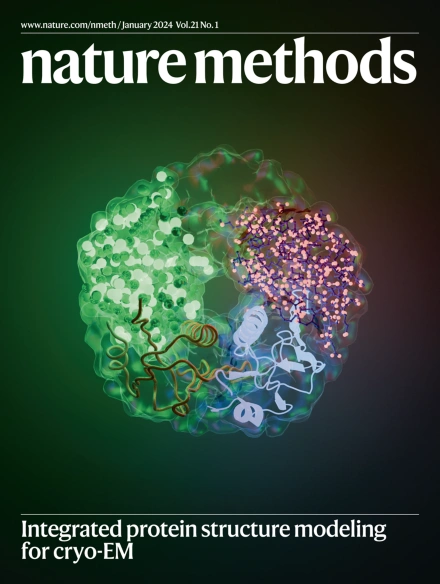不同样品制备方法对自上而下蛋白质组学蛋白质形式鉴定的影响
IF 36.1
1区 生物学
Q1 BIOCHEMICAL RESEARCH METHODS
引用次数: 0
摘要
采用质谱技术的自上而下蛋白质组学有助于鉴定完整的蛋白质形态,即蛋白质的所有分子形式。过去取得的多项进展推动了众多样品制备工作流程的发展。在此,我们系统地研究了不同样品制备步骤对蛋白形式和蛋白质鉴定的影响,包括细胞裂解、还原和烷基化、蛋白形式富集、纯化和分馏。我们发现,样品制备的所有步骤都会影响蛋白质形式鉴定的子集(例如,其数量、可信度、理化性质和人工生成的修饰)。不同的样品制备策略产生了互补的鉴定结果,大大提高了蛋白质组的覆盖率。总之,我们从人类 Caco-2 细胞的 2,720 种蛋白质中鉴定出了 13,975 种蛋白质形式。这些结果可作为设计和调整自上而下蛋白质组学样品制备策略以解决特定研究问题的建议。此外,我们预计在完整蛋白质水平上发现的取样偏差和修饰也将有助于改进自下而上的蛋白质组学方法。本文章由计算机程序翻译,如有差异,请以英文原文为准。

Influence of different sample preparation approaches on proteoform identification by top-down proteomics
Top-down proteomics using mass spectrometry facilitates the identification of intact proteoforms, that is, all molecular forms of proteins. Multiple past advances have lead to the development of numerous sample preparation workflows. Here we systematically investigated the influence of different sample preparation steps on proteoform and protein identifications, including cell lysis, reduction and alkylation, proteoform enrichment, purification and fractionation. We found that all steps in sample preparation influence the subset of proteoforms identified (for example, their number, confidence, physicochemical properties and artificially generated modifications). The various sample preparation strategies resulted in complementary identifications, substantially increasing the proteome coverage. Overall, we identified 13,975 proteoforms from 2,720 proteins of human Caco-2 cells. The results presented can serve as suggestions for designing and adapting top-down proteomics sample preparation strategies to particular research questions. Moreover, we expect that the sampling bias and modifications identified at the intact protein level will also be useful in improving bottom-up proteomics approaches. A systematic analysis of the influence of different sample preparation steps on proteoform identification by top-down proteomics serves as a useful reference for designing appropriate workflows for specific research questions.
求助全文
通过发布文献求助,成功后即可免费获取论文全文。
去求助
来源期刊

Nature Methods
生物-生化研究方法
CiteScore
58.70
自引率
1.70%
发文量
326
审稿时长
1 months
期刊介绍:
Nature Methods is a monthly journal that focuses on publishing innovative methods and substantial enhancements to fundamental life sciences research techniques. Geared towards a diverse, interdisciplinary readership of researchers in academia and industry engaged in laboratory work, the journal offers new tools for research and emphasizes the immediate practical significance of the featured work. It publishes primary research papers and reviews recent technical and methodological advancements, with a particular interest in primary methods papers relevant to the biological and biomedical sciences. This includes methods rooted in chemistry with practical applications for studying biological problems.
 求助内容:
求助内容: 应助结果提醒方式:
应助结果提醒方式:


